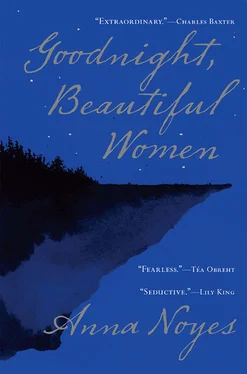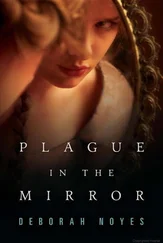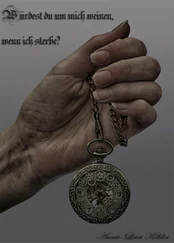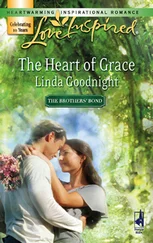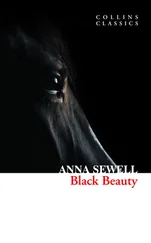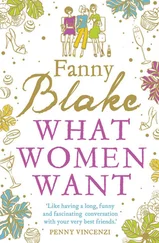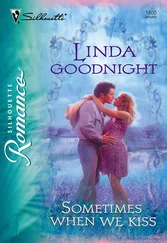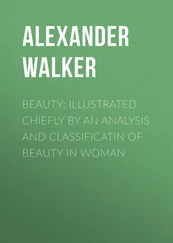When I finally made it to the end of my driveway I opened the mailbox and there wasn’t even a flyer, just a birthday postcard from my dentist forwarded from my old address for the twenty-fifth birthday I’d celebrated two months before. I decided to keep walking along the shoulder of the road toward the harbor. When a car came by, which they did on this road at about sixty-five miles per hour, I stepped from the gravelly shoulder into the ditch and collected the garbage littered there, until the garbage was too much to hold. I was still miles away from the dock so I stacked the Burger King bags, Miller Lite cans, and Styrofoam shreds in a neat little pile and left it behind.
I had read Stephen King’s memoir about life in Maine to try and feel rooted in my own life, and it comforted me to know that he too had gone for long, dangerous walks along the road’s shoulder. Stephen had been hit by a van that veered into the wrong lane while the driver tried to control his Rottweiler. I imagined the same wild driver was still behind the wheel, careening down this very road with his slobbery Rottweiler as I slogged through the stream of ditch water.
I was ten minutes from my parents’ house, but I didn’t want them to see me. We had a deal that though we lived in the same town we would keep our lives separate unless I invited them over or they invited me over for dinner parties, which happened about twice a month, or sometimes we met in the adjacent town for a sandwich. When I met with them I wore a pair of bright, salmon-colored pants, tied my hair in a ponytail, and talked about the choir, trying to act as though everything was all right. I knew that they had been looking forward to a wedding and to grandchildren from the day they’d met Bruce. “I can die now,” my mother had told me that Christmas, “knowing you’re happy.” She ran her fingers lightly across my back, my head resting in her lap. There was someone else in the world who could take care of me.
I wondered what they were doing, and pictured them sitting under the arbor my dad had built, smoking pot out of the hookah, maybe, and listening to the static-laced Bob Dylan Hour on the radio as dark clouds gathered, our three yellow Labs rolling in the muddy grass. Every time Bruce and I came for dinner I would have given anything to send Bruce away and stay the night in my mom’s bed, eating Pop-Tarts and watching Special Victims Unit with her asleep in the bed beside me and her lumpy wool socks pressed against my leg, surrounded by velvet pillows and her incense smell, Dad’s snores rising up from downstairs where he slept beside the woodstove. But instead I helped Bruce wash the dinner dishes, resenting his tiring, relentless displays of politeness, and then I’d hug them goodbye and climb in the cold car and drive the six minutes to our house in the woods, panicked with homesickness, like I was attending the world’s longest sleepover. For years I’d lived across the country and hadn’t felt a glimmer of desire to move back in with my family, not once.
When I reached the dock parking lot I could smell the lobster pound that was next door to my parents’ house, and I swore I could hear the faint sounds of the Labs barking and my mom calling them inside, her wolf whistle carrying across the bay. The dock payphone had been disconnected, but I picked up the phone just in case and listened into it, then walked over to the hut where the sailing students took lessons. There were six pieces of rope that the students used to practice their knots, attached to a plank above a hitching post. Below each rope was the name of the knot the students were meant to tie — Bowline, Anchor Bend, Sheepshank, Halyard Hitch, Slip, and Reef. Sheepshank and Slip were still intact and I undid those and tried to redo them but the rope kept coming loose in my hands. I gave up and tied the pieces of rope together in pairs like children’s shoelaces.
I wanted to walk down to the dock but someone was sitting on the end of the pier, hunched and small beside the few remaining rowboats. When she turned her head, I saw that it was Nancy.
Soon Bruce would be home, his lips purpled with wine, and we would share another bottle together and the squash I had stuffed with leftovers from another type of squash and rice dish and watch a video he had discovered at work of cats falling in slow motion and landing on their feet.
Though I felt shy I forced myself to walk down the ramp to the dock and sit on the opposite side of the pier from Nancy, slipping my feet, already cold and pruned from my wet sneakers, into the ocean because that’s what I had envisioned I would do. I watched my feet in the freezing water, and after some sharp pain I couldn’t feel them anymore. They looked fat and skittish, like they’d taken on a temperament of their own.
“Hey, stranger,” she called from the other side of the pier. “I see you over there, pretending you don’t see me.” I wished I could hide myself from her. It felt important that she not recognize me, in the sickly, greenish light of an oncoming storm, my face caked with Sun-kissed Medium, but there was nowhere to go. She sat beside me and dangled her legs off the dock, her feet next to mine in the water like two smaller fish of the same species.
“I didn’t want to bother you,” I said, and she held out her hand to me, for a shake, I thought, but when she slipped her tiny, freezing hand into mine she just held it there like I might kiss it. She wore a man’s overcoat, and a yellow, rubber rain hat. I couldn’t tell looking at her that her brain had been altered in some grave, irreparable way. She was still a girl who would look good on the cover of a cereal box: upturned nose, freckles, blue eyes, quick to blush.
“I don’t know if you remember me,” I said. “I’m Mae, Roy and Becky’s daughter.”
“Of course I remember you,” said Nancy. “I remember everything.”
She took off her rain hat. Her white-blonde hair was braided in a crooked tangle down her back. “Do you know how to French braid? I’ve been trying on myself all summer.” I started working on the knots. Her hair was brittle, as though salted by the sea. The nape of her neck was damp with sweat. Downy, dark hairs hid beneath the blonde. Hair didn’t grow on the pink scar behind her left ear. The clouds had turned to purple and then to black, suspended above us. I pulled my feet from the water and waited for the painful circulation of blood. It was time to go, but Nancy had a lot of hair, and I was only halfway down her back.
One summer, a pack of teenagers, one of them Nancy, lit candles on the tennis court across the street from my parents’ house, held hands, and spun each other in circles, sneakers squeaking as they whipped around faster and faster. Only after the kids left the tennis court did my dad go out and discover the courts littered with beer bottles and yellow wax, which would have to be cleaned by a professional. “Never be oblivious like that,” my dad said when he returned home, shaking the dregs of their beers into our garden’s slug traps.
But the next evening when the courts were clear and it was dark I snuck across the street and spun with the roller used for squeegeeing the courts dry, gripping the end of its long handle like a dance partner’s hands, its weight a counterweight to my body, until I was queasy and had to lie down. The stars spiraled above me, and I pretended deliciously that I was sick and dizzy from beer and that everyone else was spinning in the surrounding darkness.
I tied off her braid, and tried to look her in the eyes. Looking her in the eyes felt like the next best thing to asking about her coma, which I didn’t know how to do. When I got up to leave I reached out and balanced myself on her shoulders.
“Please don’t go,” she said. “If you stay I’ll show you my best secret, as payback for the braid.” She pulled a slimy sheet of seaweed from the water, smooth and alive, and draped it over the shoulders of my raincoat.
Читать дальше
